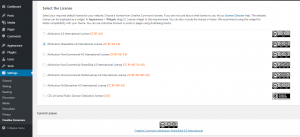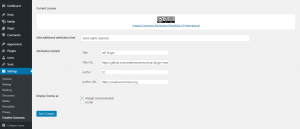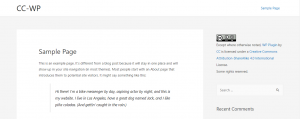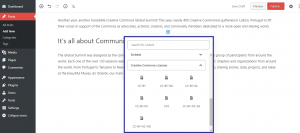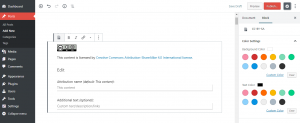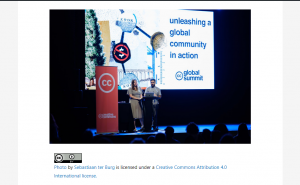A Coalition to Support Implementation of the UNESCO OER Recommendation
jeudi 28 novembre 2019 à 16:19
The UNESCO Open Educational Resources (OER) Recommendation was unanimously adopted on November 25 by 193 UNESCO member states at the 40th UNESCO General Conference. This milestone offers a unique opportunity to advance open education around the world.
Why does it matter? This Recommendation is an official UNESCO instrument that gives national governments a specific list of recommendations to support open education in their countries and to collaborate with other nations.
Creative Commons is thrilled with this important milestone! We’ve been working on open education with UNESCO, the Commonwealth of Learning, and multiple national government and institutional partners for over 15 years. CC was on the drafting committee for both the 2012 UNESCO OER Declaration and the 2019 UNESCO OER Recommendation. In 2015, CC worked with UNESCO on its Open Access Repository. CC also attended and keynoted the 2017 UNESCO OER Global Congress.
Recognizing the importance of the UNESCO OER Recommendation, a coalition of organizations active in advancing open education globally has joined forces to support its implementation. Coalition partners, in alphabetical order, are:
- Commonwealth of Learning
- Creative Commons
- International Council for Open and Distance Education
- Jožef Stefan Institute
- Knowledge 4 All
- Open Education Global (formerly Open Education Consortium)
- Slovenian National Commission for UNESCO
- SPARC Europe
- SPARC North America
The coalition will collectively leverage these organizations’ strengths and expertise, combining and coordinating efforts to create and deliver comprehensive resources and services in support of implementing the Recommendation across all UNESCO member states. The coalition will meet in early 2020 to develop a list of services, materials, activities, and communication plans that we will use to support national governments. Implementation support will be focused on providing assistance for the Recommendation:
Five areas of action:
- Building capacity of stakeholders to create, access, use, adapt and redistribute OER
- Developing supportive policy
- Encouraging inclusive and equitable quality OER
- Nurturing the creation of sustainability models for OER
- Facilitating international cooperation
Monitoring and reporting:
- Deploying appropriate research programmes, tools and indicators to measure effectiveness
- Collecting, presenting, and disseminating progress, good practices innovations and research reports
- Strategies for monitoring and evaluating the effectiveness and long-term financial efficiency of OER
For more information contact:
Dr. Cable Green
Interim CEO & Director of Open Education
Creative Commons
cable@ creativecommons dot org
Jennryn Wetzler
Assistant Director of Open Education
Creative Commons
jennryn@ creativecommons dot org
The coalition also welcomes questions, requests, and suggestions using this form.
CC is excited to work together with stakeholders around the world in building open education capacity and effectiveness. Together we can fulfill the aims and objectives of the UNESCO OER Recommendation and make significant progress in achieving access to quality education for all. Let’s get to work.
The post A Coalition to Support Implementation of the UNESCO OER Recommendation appeared first on Creative Commons.

